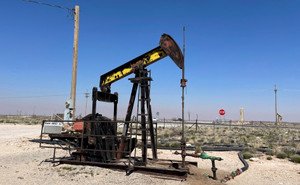Trump US energy emergency order should withstand court challenges
Published by Global Banking & Finance Review®
Posted on January 23, 2025
4 min readLast updated: January 27, 2026

Published by Global Banking & Finance Review®
Posted on January 23, 2025
4 min readLast updated: January 27, 2026

Trump's energy emergency order seeks to expedite drilling and pipeline projects, facing legal scrutiny but limited by environmental laws.
(Reuters) - U.S. President Donald Trump’s declaration of a national energy emergency to boost drilling and speed up pipeline construction should withstand court challenges but will not allow oil and gas producers to skirt all environmental laws, according to legal experts.
Trump, a Republican who campaigned on a promise to "drill baby drill," has said the declaration will speed permitting and approval of energy projects to fix what he has called an inadequate and unaffordable U.S. energy supply.
The U.S. is the world's largest oil producer and the world's largest exporter of liquefied natural gas, according to U.S. Energy Information Administration data.
Trump's energy declaration, among the executive orders he signed his first day in office, invokes a federal law giving the president broad discretion to declare emergencies and unlock special powers. Legal experts say challenging the declaration itself in court would likely be futile because courts rarely question the president’s judgment in using the National Emergencies Act.
"The law doesn’t define what an emergency is, and so far no court has been willing to overturn a finding that there is an emergency," said University of California, Berkeley Law School professor Dan Farber.
The National Emergencies Act can unlock presidential powers in 150 different statutes but has limited reach into environmental laws and regulations.
The true legal tests will likely arise in implementation of the order, which directs federal agencies to scour their books for laws and regulations that could be used to speed along approval and permitting for projects like drilling, refining and pipeline construction.
The order cites laws including the Clean Water Act, Endangered Species Act and Mammal Protection Act, which impose review and permitting requirements on energy projects.
"It could expedite energy projects but also harm water standards, endangered species protections, fill in the blank," said Emory University School of Law professor Mark Nevitt.
"There’s a reason those emergency regulations aren’t tapped on a day-to-day basis."
Erik Schlenker-Goodrich, Executive Director of the Western Environmental Law Center, said he expects most of the legal fighting to arise over what federal agencies actually do, rather than the declaration itself.
"We anticipate that political appointees will work to implement Trump’s agenda through secretarial orders and specific agency actions, whether regulatory rollbacks, new lease sales, drilling permits, pipeline approvals, etc. That’s where the fight will prove most intensive," Schlenker-Goodrich said.
The emergency declaration could be a useful tool for defending those agency decisions in court, providing a national security rationale that judges would be unlikely to question, some experts said.
The order includes a prominent role for the president’s National Security Advisor, who could sign off on reports concluding that certain regulatory rollbacks are necessary to protect vital national interests.
"Once you have that badge of approval from the National Security Council, you can flash it to every federal judge that tries to stand in the way, because courts consistently defer to national security claims," said Tyson Slocum of the consumer advocacy group Public Citizen.
Environmental groups have condemned the energy emergency order, saying climate change driven by fossil fuels consumption is the true emergency.
But some have said they do not expect to file lawsuits until they see what the administration actually does.
"It’s hard to challenge an executive order in general," said Brett Hartl of the Center for Biological Diversity. "If they start doing things that are egregious and use the executive order as a rationale, we would be prepared to sue," Hartl added.
David Doniger, a senior attorney with the Natural Resources Defense Council, said in a statement that the emergency declaration does not override other laws and that any regulatory rollbacks outlined in executive orders will have to be done through proper legal channels.
"We certainly will challenge rollbacks that lack legal and scientific support."
While Trump can encourage new drilling by rolling back regulations and pushing for more fossil fuel output in places like Alaska, the cadence at which oil and gas production increases will ultimately be decided by energy companies and market forces.
Many energy firms have restrained growth in recent years to focus on shareholder returns and buybacks after investors soured on the sector. Meanwhile, natural gas producers are looking to a boom in new U.S. LNG facilities to boost demand after cutting output in 2024 as prices fell to the lowest in decades. (This story has been refiled to change the date to Jan 22, not Jan 21, in the dateline)
(Reporting by Jack Queen in New York; Additional reporting by Valerie Volcovici; Editing by David Gregorio)
The article discusses Trump's national energy emergency order to boost drilling and pipeline construction.
The order may expedite energy projects but is limited by existing environmental laws like the Clean Water Act.
While the order itself may withstand challenges, its implementation could face legal scrutiny over environmental impacts.
Explore more articles in the Finance category
